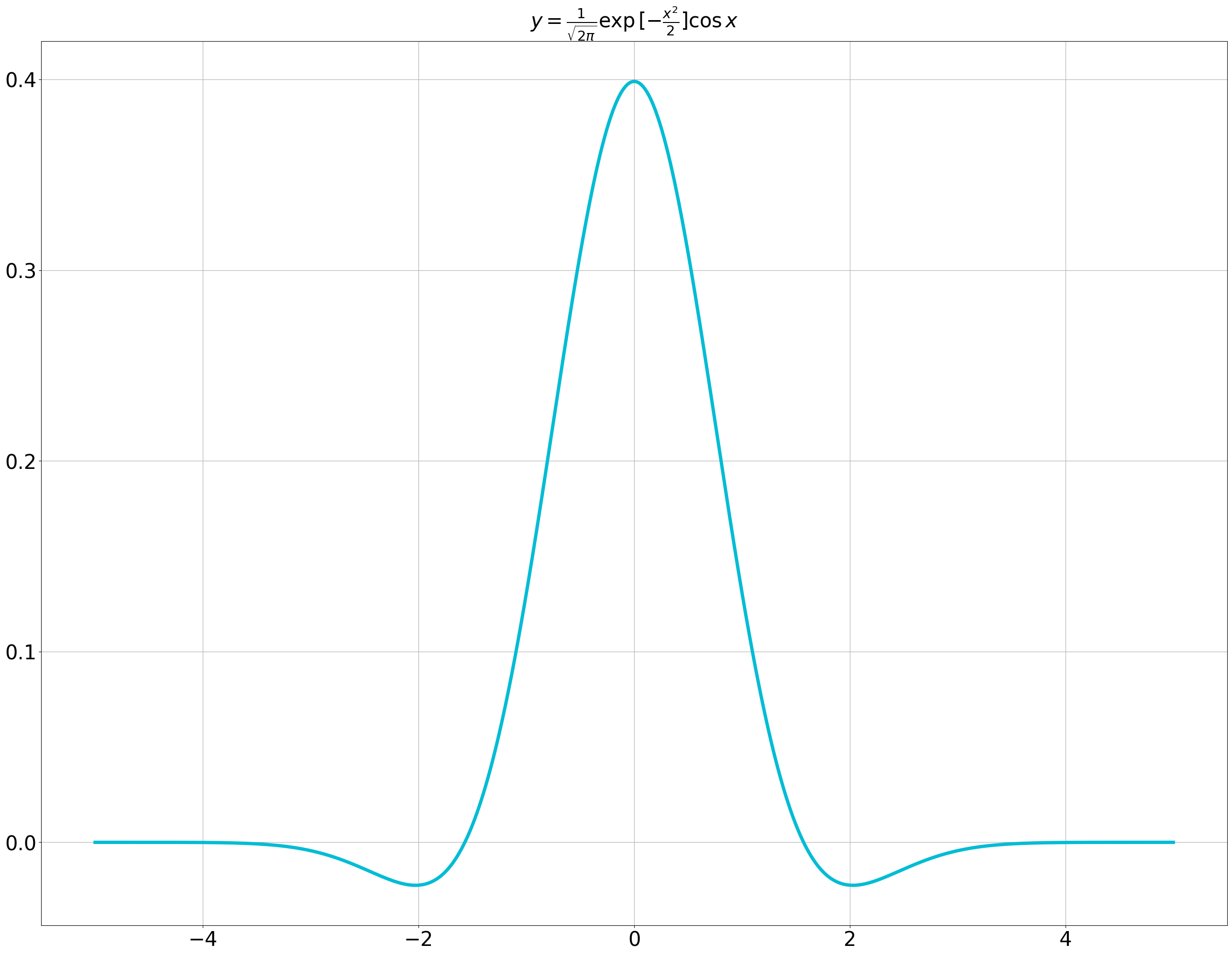Expected Value of the Cosine of a Random Variable Following the Standard Normal Distribution
Proposition
For a random variable
Proof 1
The probability density function of the standard normal distribution is given by:
Therefore, the expectation of
To compute this integral, we use the fact that:
Thus:
By substituting
Therefore:
To solve this, complete the square in the exponent of the integrand:
Substitute
This becomes a complex integral.
Consider a rectangular contour
Since
Also, assuming
Thus, as
Similarly,:
Therefore, as
The integral along
Thus:
Hence:
Proof 2
Using the Maclaurin series expansion of
Let:
Using integration by parts:
So:
Using this recurrence relation repeatedly:
Thus:
Note
It should be noted that the expected value of
The graph of the integrand function considered here is as follows. In this case, we calculated the area (considering the sign) of the region enclosed by this graph and the x-axis.

If the characteristic function of the normal distribution is known, this problem is very simple.
Since the probability density function is an even function,
therefore, by substituting
the result can be immediately obtained.
Fourier Transform of the Probability Density Function of the Normal Distribution (Gaussian Function)
